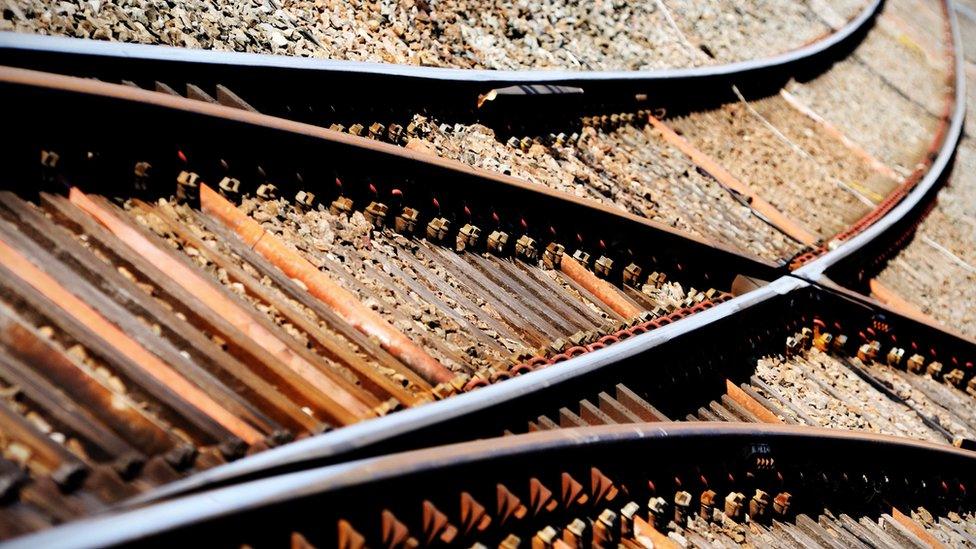Budget 2020: Chancellor will promise 'record' infrastructure spend
- Published

Railways will be among the infrastructure to see a boost in funding after Wednesday's budget
The government will promise to raise infrastructure spending to its highest in decades in Wednesday's Budget.
It will pledge to triple the average net investment made over the last 40 years into rail and road, affordable housing, broadband and research.
The Treasury told the BBC it would lead to the "highest levels [of investment] in real terms since 1955" - more than £600bn over the five-year Parliament.
Chancellor Rishi Sunak will present the Budget less than a month into the job.
It comes as the government faces calls for increased investment in a number of sectors to help tackle the coronavrius outbreak.
On Sunday, Mr Sunak told the BBC's Andrew Marr the NHS would get "whatever resources it needs" during the crisis.
The chancellor also said he was looking at extra financial help for individuals and businesses if measures against the virus meant they were out of pocket.
The BBC understands Mr Sunak will promise a gross amount of over £600bn for capital spending - money put into projects like roads and rail - by the middle of 2025.
The chancellor said: "We have listened and will now deliver on our promise to level up the UK, ensuring everyone has the same chances and opportunities in life, wherever they live.
"By investing historic amounts in British innovation and world-class infrastructure, we will rebalance opportunities and lay the foundations for a decade of growth for everybody."
BBC political editor Laura Kuenssberg said the decision marked a significant increase in the amount of spending on capital projects compared to the period since Margaret Thatcher came to power in 1979.
However, she said it was not yet clear if the government would stick to its own fiscal rules set out in its manifesto.
Shadow chancellor John McDonnell said the plans were "exaggerated claims".
He added: "We've heard it all before. "The Chancellor seems to have forgotten we have to dig ourselves out of the £192bn hole in our infrastructure spend created by his government.
"Boris Johnson has a track record of boastful claims followed by non delivery and it looks like he is running true to form."


If you wondered what the government's new buzz phrase of "levelling up" was meant to mean, the Conservatives will try to provide the answer tomorrow.
In his first budget, the Chancellor, Rishi Sunak, will commit to the biggest increase on spending on capital - roads, rail, research - that there has been in generations.
He's expected to promise to sign a hypothetical cheque of more than £600bn of gross public sector investment, to be cashed by the middle of 2025, we understand.
And the Treasury tonight claims it will push public investment in real terms to levels not seen since 1955.
But it's wise to be careful with the historical claims. The economy is totally different to that era.

The government is also set to pledge £2.5bn to fixing potholes in England as part of the Budget.
The Treasury said the funding package would also be available to local authorities to start resurfacing works, preventing potholes from appearing in the first place.
But Mr McDonnell said the policy was part of a "gimmicky grab-bag of projects".